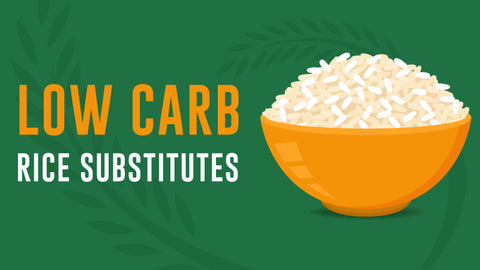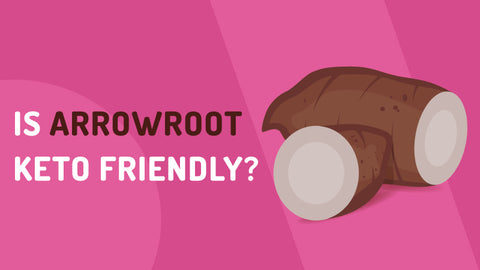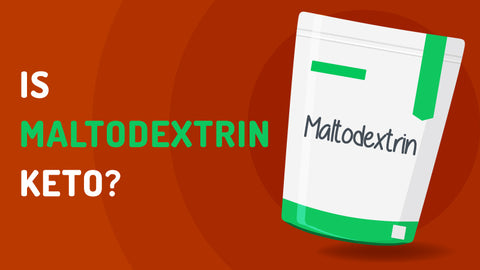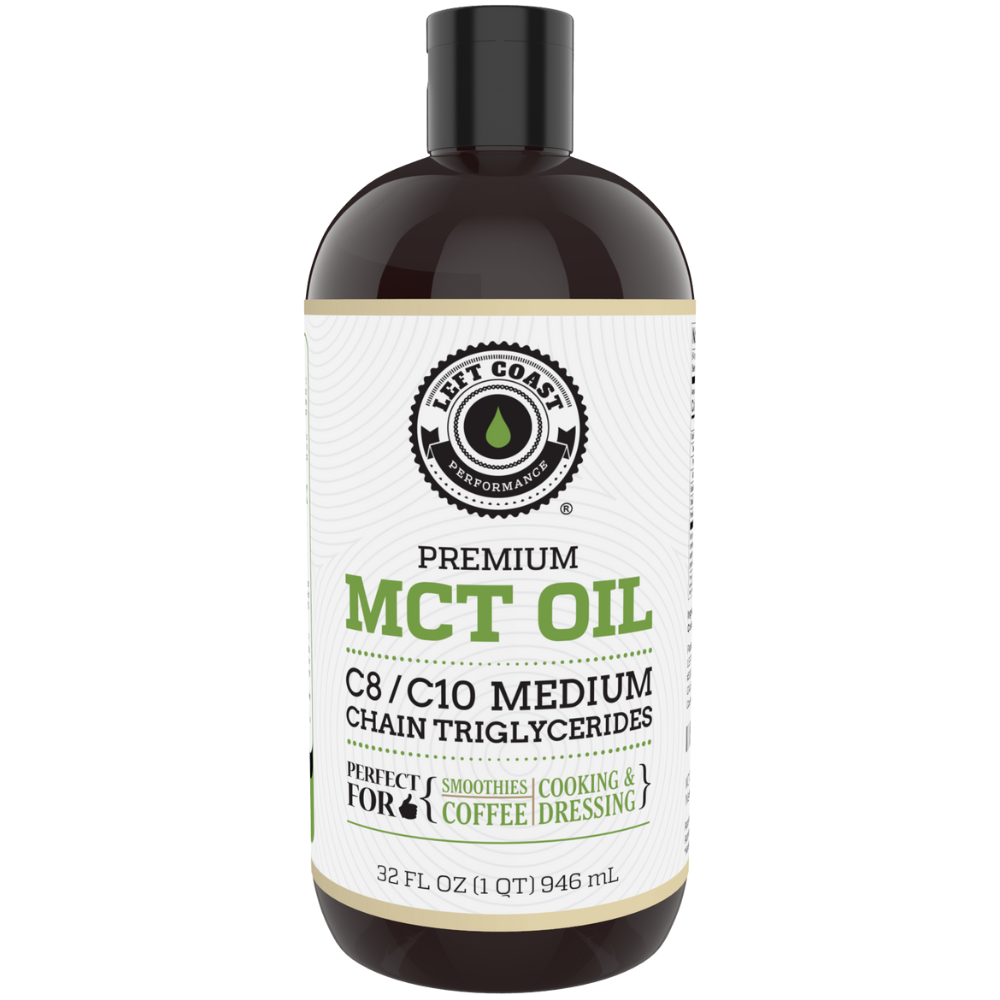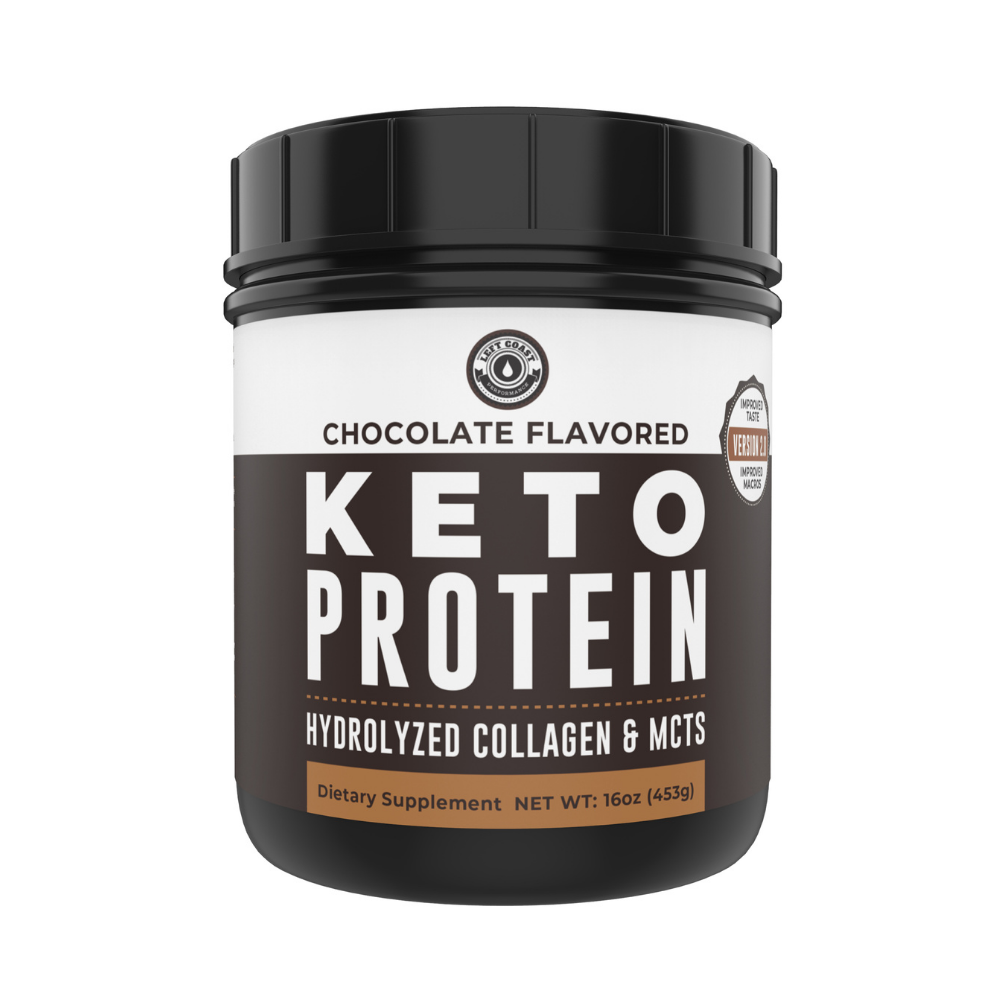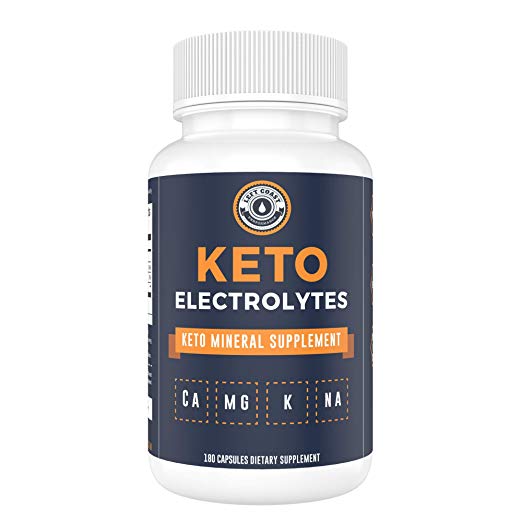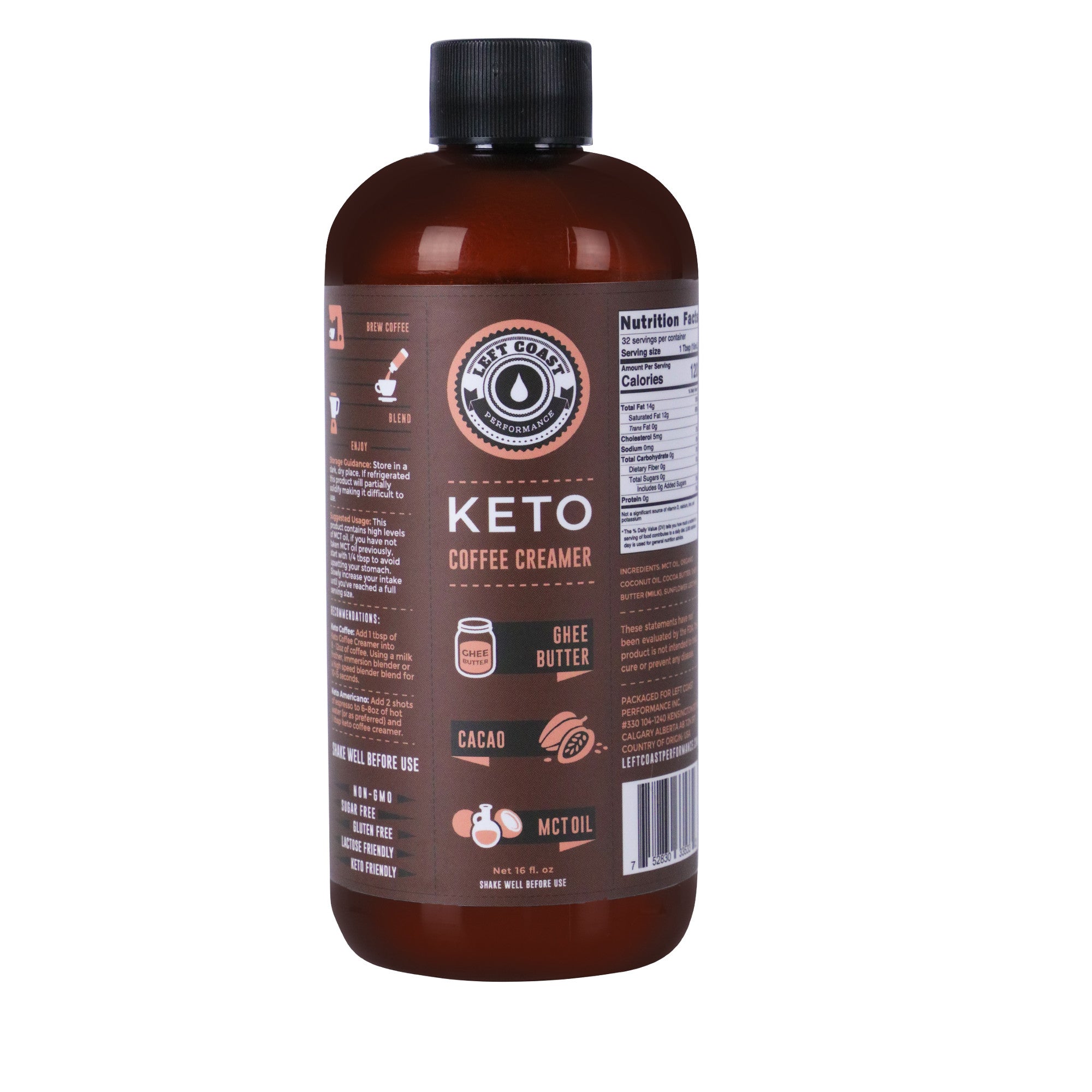MCT Oil for Weight Loss (& why it works)

on June 20, 2019
When it comes to the keto diet, not all oils are created equal. Medium-chain triglyceride (MCT) oil, on the other hand, is one of the healthiest oils out there, especially for those following a keto lifestyle. Let’s take a look at how this oil works, what it can do for you, and where you can find it.
What is MCT Oil?
MCT oil is a man-made oil that consists of medium-chain triglycerides. A trygliceride is a type of lipid (fat) found in your blood, stored in your fat cells and used to store unused calories from food.
MCTs contain six to twelve carbon atoms, which are arranged in a tail and give the molecule unique properties that other lengths of triglycerides do not have. MCTs are beneficial to the body because they are easily digested and perform specific tasks associated with energy consumption, excess calorie usage, and weight loss.
Medium vs. Long-Chain Triglycerides
When you eat food, your body breaks down what you eat into fundamental molecules that your body can use as energy. Medium-chain triglycerides are special because they skip the normal digestion process that usually begins in the intestines. Instead, MCTs get absorbed as many other small nutrients do — in the liver.
The liver breaks down MCTs and can turn them directly into ketone bodies that can be used in the body almost immediately. Because the MCTs in MCT oil can rapidly transform into ketones, many people on the keto diet use it to fast-track the transition into ketosis.
Long-chain triglycerides, on the other hand, are not digested as easily as the medium-chain variety. Long-chain triglycerides, or LCTs, contain more carbon atoms than medium-chain lengths. Long-chain triglycerides can have up to twenty-one carbon atoms and get absorbed through the villi of the intestine, where they are broken down and reassembled. Because of their long carbon tails, long-chain triglycerides take longer for the body to break apart, and may be stored as fat if not used right away.
Types of MCTs
There are four different variations of medium-chain triglycerides. The difference between them is the number of carbon atoms in each of the molecules’ tails. Caproic acid (C6) contains six carbon atoms, while caprylic acid (C8) contains eight, capric acid (C10) contains ten and lauric acid (C12) contains twelve.
Caproic acid, caprylic acid, and capric acid all behave similarly in your body — they bypass the normal route of digestion and skip to the liver instead where they are converted into ketone bodies. Lauric acid, on the other hand, behaves like a long-chain triglyceride and takes longer to digest.
For this reason, many manufacturers are picky about the types of MCTs that go into their product. High-quality MCT oils will contain fewer molecules of lauric acid and more of the shorter lengths of medium-chain triglycerides.
MCT Oil Production Process
To make MCT oil, manufacturers extract MCTs from sources that are naturally high in these types of molecules — coconut oil and palm kernel oil. These two oils, while naturally high in medium-chain triglycerides, also contain long-chain triglycerides.
Long-chain triglycerides take longer for the body to metabolize and get stored as fat during the long digestion process. By extracting the medium-length chains from each source and combining them, you are left with pure MCT oil that only contains the medium-length triglycerides.
While some manufacturers use both MCTs from coconut oil and palm kernel oil, some (like Left Coast) prefer to extract exclusively from coconut oil for the sake of the environment. Palm kernel oil is known as a major contributing factor in rainforest deforestation.
While many MCT oil varieties are derived from coconut oil, the two behave very differently. Coconut oil will harden in cooler temperatures, due to the many long-chain triglycerides it contains. MCT oil, conversely, stays in liquid form.
Benefits of MCT Oil
More and more studies are being conducted on MCT oil, which will further our understanding of the effects of medium-chain triglycerides and how they interact with our bodies.
Some studies have already confirmed a few benefits of consuming MCT oil.
Weight loss
MCT oil is known to promote weight loss. In one study that compared MCT oil to olive oil, the MCT group lost more weight. MCTs are not stored like other triglycerides, making it an ideal oil substitute for those trying to lose weight.
Promotion of Ketogenesis
One of the best properties of MCT oil is its ability to easily transform into ketone bodies in the liver. In fact, MCT oil may be one of the best tools to quickly transition into ketosis because it creates ketones even when carbohydrates aren’t restricted. MCT oil acts as a direct source of ketone bodies, providing the body with a convenient shortcut that can help people avoid a slow, drawn-out transition into ketosis.
Reduction of Appetite
Peptide YY and leptin are two chemicals that affect your sense of appetite. They work by making you feel full when you have had enough to eat. MCT oil increases the levels of these two hormones in your body, which not only promote feelings of satiety but also proved to help people eat less.
Absorption of Nutrients
MCT oil can increase the absorption of certain nutrients in your body. Because MCT oil is digested quickly and more efficiently than other fatty acids, it can also help your body do the same for other nutrients. Studies have shown that people with gastrointestinal disorders can especially benefit from this characteristic of MCT oil. Often, MCT oil is a major component of total parenteral feeding.
How Does MCT Oil Help You Lose Weight?
MCT helps people lose weight in a few ways. First, it makes them feel fuller. MCT oil promotes the body’s production of hormones related to satiety. When more of these hormones are released, people tend to eat less without feelings of deprivation.
MCTs also require no energy to digest, meaning that once the oil is consumed, it does not get stored as fat as it waits to be digested. Instead, MCT oil is rapidly absorbed into the body, and quickly turned into ATP, the body’s favorite form of energy. MCT oil promotes caloric use, meaning it’s easier to burn calories, which can also contribute to its weight loss effects.
Taking MCT Oil
On its own, MCT oil is a clear, mild-tasting oil that is liquid at most temperatures. Unlike coconut oil, MCT oil will not solidify at cooler temperatures because it does not contain the long-chain triglycerides responsible for that reaction.
A non-refined oil, MCT oil can be used in ways similar to how you would normally use olive or walnut oils. It has a low smoking point, so it is best used in applications that require low to medium levels of heat (stick to refined oils like avocado or canola for deep frying and stir-frying).
One of the best ways to incorporate more MCT oil into your diet is to use it directly, without applying any heat to it. Many people choose to add a serving of MCT oil to their morning coffee for a boost of healthy fat. Others mix it into salad dressings, dips, or spreads. MCT oil is very versatile, has a mild taste, and is a great way to add a few extra grams of fat to any keto dish.
MCT Oil and the Keto Diet
As discussed above, MCT oil is excellent for promoting the absorption of various nutrients. For many of the same reasons, MCT oil also turbocharges the production of ketones. Because MCT is absorbed into the body more quickly and transported more easily than just about any other type of fat, it produces more ketones of energy per day.
For this reason, an entirely new branch of the keto diet was developed that uses MCT oil in order to create more ketones with fewer restrictions on carbs and protein. With the MCT keto diet, between 30% and 60% of your fat intake should come from MCT fats like coconut oil.
Many people prefer MCT keto to the regular keto diet because they can eat a wider variety of foods like fruits and vegetables, and increase serving sizes without exiting ketosis.
Those on a standard ketogenic diet also benefit from the introduction of MCT oil. It can help people reach ketosis faster and make the process of maintaining it easier.
Recommendations
Look for an MCT oil that is derived purely from coconut oil. While palm oil cultivation is disastrous for the environment, coconut sources are far more sustainable and deliver the same amounts of medium-chain triglycerides that a blended MCT oil.
Be sure to check labels on your food to see which MCTs are present. A good rule of thumb: the higher the number of carbon atoms, the slower your body will digest the triglyceride.
If you follow these rules of thumb, it should be easy to incorporate MCT oils into your existing keto diet. Not only are they healthy fats, but they’ll also help you get into ketosis and stay there, giving you a much-needed boost on your weight loss journey.


